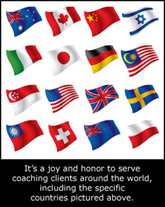 Country profile: Rwanda
Country profile: Rwanda
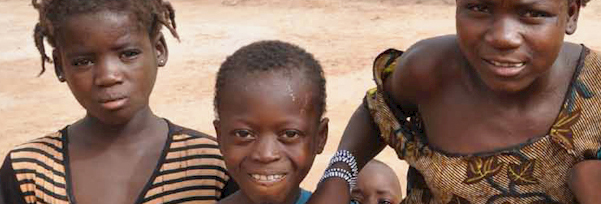
Rwanda experienced Africa's worst genocide in modern times, and the country's recovery was marred by its intervention in the conflict in neighbouring Democratic Republic of Congo.
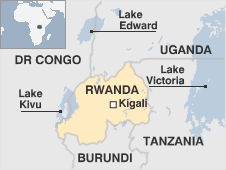
The country has been beset by ethnic tension associated with the traditionally unequal relationship between the dominant
Tutsi minority and the majority Hutus.
Although after 1959 the ethnic relationship was reversed, when civil war prompted around 200,000 Tutsis to flee to Burundi, lingering resentment led to periodic massacres of Tutsis.
Overview
The most notorious of these began in April 1994. The shooting down of the plane carrying President Juvenal Habyarimana, and his Burundian counterpart, near Kigali triggered what appeared to be a coordinated attempt by Hutus to eliminate the Tutsi population.
 |
AT-A-GLANCE
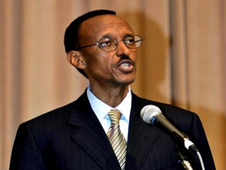
Politics: Rwanda is trying to shake off its image associated with the 1994 state-sponsored genocide; the government argues the country is now stable
Economy: Growth has exceeded 5% in the five years since 2001, driven by coffee and tea exports and expanding tourism; poverty is widespread and Rwanda is highly dependent on aid
Justice: The UN International Criminal Tribunal for Rwanda (ICTR) has convicted 27 people for their involvement the 1994 genocide
|
In response, the Tutsi-led Rwandan Patriotic Front (RPF) launched a military campaign to control the country. It achieved this by July, by which time at least 800,000 Tutsis and moderate Hutus had been brutally massacred.
Some two million Hutus fled to Zaire, now the DR Congo. They included some of those responsible for the massacres, and some joined Zairean forces to attack local Tutsis. Rwanda responded by invading refugee camps dominated by Hutu militiamen.
Meanwhile, Laurent Kabila, who seized control of Zaire and renamed it the DR Congo, failed to banish the Hutu extremists, prompting Rwanda to support the rebels trying to overthrow him.
Rwanda withdrew its forces from DR Congo in late 2002 after signing a peace deal with Kinshasa. But tensions simmer, with Rwanda accusing the Congolese army of aiding Hutu rebels in eastern DR Congo.
Rwanda has used traditional "gacaca" community courts to try those suspected of taking part in the 1994 genocide. But key individuals - particularly those accused of orchestrating the slaughter - appear before an International Criminal Tribunal in northern Tanzania.
The country is striving to rebuild its economy, with coffee and tea production being among its main sources of foreign exchange. Nearly two thirds of the population live below the poverty line.
Facts
- Full name: Republic of Rwanda
- Population: 10 million (UN, 2009)
- Capital: Kigali
- Area: 26,338 sq km (10,169 sq miles)
- Major languages: Kinyarwanda (official), French (official), English (official), Swahili
- Major religions: Christianity, indigenous beliefs
- Life expectancy: 48 years (men), 52 years (women) (UN)
- Monetary unit: 1 Rwandan franc = 100 centimes
- Main exports: Coffee, tea, hides, tin ore
- GNI per capita: US $410 (World Bank, 2008)
- Internet domain: .rw
- International dialling code: +250
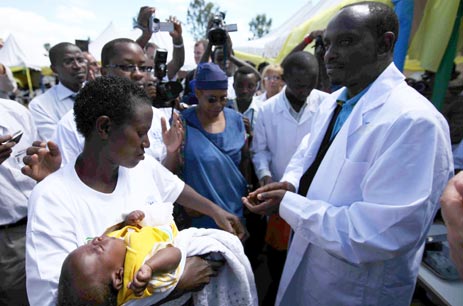
Leaders
President: Paul Kagame
In August 2003 Paul Kagame - who had been selected by MPs as president in 2000 - claimed a landslide victory in the first presidential elections since the 1994 genocide.
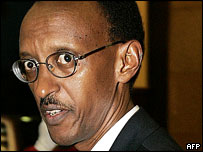
Paul Kagame, former head of rebel force
|
Rwanda has been relatively stable under Mr Kagame and the Rwandan Patriotic Front (RPF), but the Crisis Group - a conflict-prevention agency - reported in 2002 that the RPF tolerated no criticism or challenge to its authority.
Born in western Rwanda in 1957, Mr Kagame grew up in Uganda, where his parents fled to escape Hutu violence.
He joined Yoweri Museveni - Uganda's future president - in the fight to topple Milton Obote, rising to become Mr Museveni's intelligence chief.
He was instrumental in establishing the RPF, becoming its military commander. His rebel force ended the 1994 genocide.
Mr Kagame has rejected the conclusions of a French report which said he ordered the 1994 rocket attack on a plane carrying the then-president, which sparked the genocide.
Known to his colleagues as an incorruptible teetotaller, Mr Kagame downplays any ethnic agenda, presenting himself as a Rwandan and not a Tutsi. His government has redrawn Rwanda's political boundaries in an attempt to blur the distinction between ethnic Hutu and Tutsi areas.
Media
State-run Radio Rwanda is the most-listened-to station in the country. A private station, the first to open since the 1994 genocide, launched in 2004 and has been joined by a cluster of competitors. TV viewing is mainly confined to urban areas.
Radio - the country's main source of news and information - had its own role in the 1994 genocide. The notorious, privately-run "hate radio" station Radio Tele Libre Mille Collines (RTLM) was a vehicle for virulent anti-Tutsi propaganda.
In late 2003 a leading light at the station was sentenced to life imprisonment by the international criminal tribunal for Rwanda for his part in the genocide. His colleague was sentenced to 35 years in jail.
Newspapers often exercise self-censorship. In 2008 media rights organisation Reporters Without Borders said private publications were "forced to live under relentless harassment from the highest levels of the state".
The BBC can be heard across Rwanda via FM transmitters in Kigali (93.9), Karongi (93.3) and Butare (106.1). The Voice of America and Deutsche Welle broadcast on FM in Kigali.
Internet use is very limited; by 2007, 3% of Rwandans had access to the net.
The press
- The New Times - private, pro-government, English-language
- Rwanda Herald - private, English-language
- Rwanda Newsline - owned by Rwanda Independent Media Group, English-language
- Umeseso - sister paper to Rwanda Newsline, Kinyarwanda-language
Television
- Television Rwandaise (TVR) - state-owned
Radio
- Radio Rwanda - state-owned, broadcasts in English, French, Kinyarwanda and Swahili
- Radio 10 - private
- Flash FM - private
- Contact FM - private
- City Radio - private
- Radio Izuba - private
- Radio Maria - religious
News agencies

AFRICA | ASIA-PACIFIC | AMERICAS | EUROPE | MIDDLEEAST | SOUTHASIA



Mauritania Mauritius Morocco Mozambique Namibia Niger Nigeria Republic-of-congo Rwanda Sao-tome-and-principe Senegal Seychelles Sierra-leone Somalia South-africa Sudan Swaziland Tanzania The-gambia Togo Tunisia Uganda Australia Brunei Burma Cambodia China East-timor Fiji Indonesia Japan Kazakhstan Kiribati Kyrgyzstan Laos Malaysia Marshall-islands Micronesia Mongolia Nauru New-zealand North-korea Palau Papua-new-guinea Samoa Singapore Solomon-islands South-korea Taiwan Tajikistan Thailand The-philippines Tonga Turkmenistan Tuvalu Uzbekistan Vanuatu Vietnam Antigua-and-barbuda Belize Bolivia Brazil Canada Chile Colombia Costa-rica Cuba Dominica Dominican-republic Ecuador El-salvador Grenada Guatemala Guyana Haiti Honduras Jamaica Mexico Nicaragua St-kitts-and-nevis St-lucia Suriname Trinidad-and-tobago Uruguay Venezuela Albania Andorra Armenia Austria Azerbaijan Belarus Belgium Bosnia-hercegovina Bulgaria Croatia Cyprus Czech-republic Denmark Estonia Finland France Georgia Germany Greece Hungary Iceland Ireland Italy Latvia Liechtenstein Lithuania Luxembourg Macedonia Malta Moldova Monaco Montenegro Norway Poland Portugal Russia San-marino Serbia Slovakia Slovenia Spain Sweden Algeria Egypt Iran Iraq Israel-and-palestinian-territories Jordan Kuwait Lebanon Libya Mauritania Oman Saudi-arabia Sudan Syria Tunisia United-arab-emirates Yemen Afghanistan Bangladesh Bhutan India Nepal Pakistan Sri-Lanka The-Maldive


